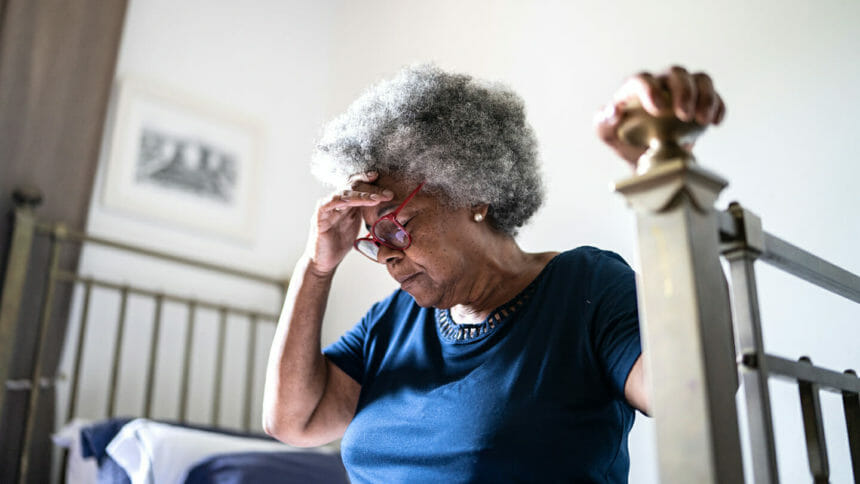
Traumatic brain injuries (TBIs) are a leading cause of disability among older adults. These injuries do not not simply have a one-time effect on the injured party, but result in long-term health consequences that change over time — improving or getting worse, according to the results of a new study.
The findings reveal the need to recognize TBI as a chronic condition and underscore the importance of providing care that supports these patients’ changing needs, researcher Benjamin Brett, PhD, of the Medical College of Wisconsin in Milwaukee said.
The study examined outcomes in more than 1,200 patients at 18 level 1 trauma centers. Patients with mild and moderate to severe TBI were matched to patients without head injuries and were followed for up to seven years.
Patient improvement, and decline
Patients continued to show improvement and decline across a range of areas over the study period, the researchers found.
The combined results of test scores for cognition and daily functioning showed that 21% of patients with mild TBI experienced declines. This was compared with declines seen in 26% of patients who had moderate to severe TBI and 15% of patients with orthopedic injuries and no head injury.
Most long-term decline was in activities of daily living (ADL) functioning. Over 2 to 7 years after their injuries, 29% of those with mild TBI and 23% of those with moderate to severe TBI experienced ADL declines.
Meanwhile, other patients showed ADL improvements, including 22% of those with mild TBI improving and 36% of those with moderate to severe TBI.
Emphasis on supports
“Our results dispute the notion that TBI is a one-time event with a stagnant outcome after a short period of recovery,” Brett said. He recommends that clinicians keep this in mind when caring for patients with these injuries.
Care for people with TBI “should place a greater emphasis on helping people who have shown improvement continue to improve and implementing greater levels of support for those who have shown decline,” Brett said in a statement.
Missed symptoms in older adults
Senior adults have the highest rates of traumatic brain injury (TBI)-related hospitalizations and deaths in the United States, and falls are the leading cause of TBI-related deaths among women aged 75 years and older and men aged 85 years of age and older.
There is a relatively higher risk for missed symptoms or misdiagnosis among older adults as well, according to the Centers for Disease Control and Prevention. Signs of TBI overlap with other common medical conditions in this age group, such as dementia, potentially obscuring TBI-related symptoms, the agency says.
Health officials recommend that clinicians check for TBI if an older adult has fallen or has a fall-related injury, or has been in a car crash. Clinicians should also note that older adults who are taking blood thinners are at particular risk for severe injury or death due after TBI to a higher risk of brain bleeds.
The study was published in the online issue of Neurology.
Related articles:
Head injury doubles 30-year mortality risk, deaths tied to neuro diseases: study
Older men at higher risk for falls-related skull fractures: study




